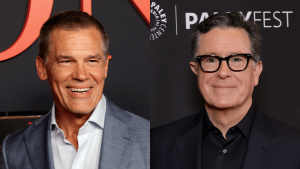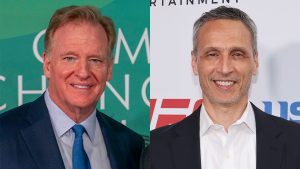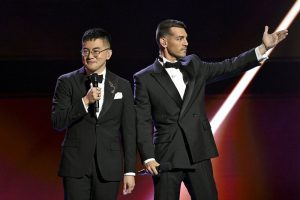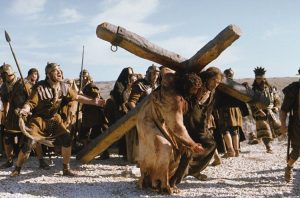
Earlier this month, a handful of the world’s greatest chess players gathered in an event space located in the lush greenery of Paris’ Bois de Vincennes.
The spectacle was part of an ambitious vision to make chess into more of a spectator sport, a new tournament called Freestyle Chess, which is holding Grand Slam events around the world, tweaking the rules of the game, and letting the players showcase their personalities and creativity on the chess board.
Only one player emerged victorious: The world’s top player, Magnus Carlsen, who defeated Hikaru Nakamura to secure the Paris Grand Slam title.
“It felt like I never gave him any chances,” Carlsen said after the victory.
Carlsen also happens to be a co-founder of Freestyle Chess, which is looking to engage both chess aficionados, as well as amateurs new to the game.
“We still have a long way to go, but I do think that we’re doing a lot of things well at the moment, and we definitely have a lot of momentum,” says Carlsen in an interview with The Hollywood Reporter.
Key to that effort is Freestyle’s presentation, which is far less staid and formal than other global chess events. The pieces are placed randomly on the board, and a time limit is enforced, forcing action and creative thinking on the part of players.
“I think perfection is kind of boring, right? So you want to make it difficult in some way,” Carlsen says. “So you start that in chess by having a time constraint, and then you make things a bit shorter and shorter.”
Along the way, flourishes reminiscent of Hollywood TV production are tossed in. The players recount the action in a “confession booth” similar to reality competition shows, explaining why they did what they did, and what they were thinking in the moment.
Chess and gaming influencers are encouraged to attend and produce content about the competition, while a pair of commentator-driven video streams discuss the action: One stream for chess enthusiasts, and another for newbies, meant to draw new chess fans into the game.
“I think really, that’s a lot of what you need to do today,” Carlsen says. “I think legacy media is really important, but if you’re talking about pure reach, then it’s very important to introduce some new elements as well.”
Carlsen is in many ways an ideal spokesperson for the game. The 34-year-old Norwegian is confident and assured, and happy to answer questions and take the spotlight. In December he made international headlines after he was disqualified from a tournament for wearing jeans (he subsequently auctioned them off for charity). In February he flew to Austin, Texas, where he sat for a marathon two hour interview with Joe Rogan, discussing his style of play, chess hustlers in the park, video games, golf, and other topics.
A recent phone call with THR took place while he was riding his bicycle home from the store.
His willingness to engage with chess fans and the broader public are part and parcel with his desire to build Freestyle Chess into a bona fide power player in the space, betting that its format and points system can grow the game globally just as tennis, golf, and other sports have done.
“We really do think that Freestyle Chess will be more compelling to people who know very little about chess, but do have an interest to to learn a little bit more,” Carlsen says, adding that he hopes Freestyle Chess will be a gateway to the game for those people. “They’re approaching things from a very basic level. So I think it’s really good to have that presentation as well, so that the commentators, even though they may be very good chess players, will try and approach everything with the curiosity of somebody else. I think that’s that’s really interesting.”
And Freestyle has embraced the high-class nature of the game, forgoing convention center ballrooms for more TV-friendly sets at resorts on the Baltic Sea (like its debut event at the Schloss Weissenhaus resort in Germany), or in the heart of Paris, Las Vegas, or Cape Town.
It’s a TV-friendly twist on a game that has been taken over by computers in recent years.
“We felt like we needed to do some something new,” Carlsen says. “And I think it’s been compelling for people to see, and it will be compelling for people to see just how difficult chess is when you remove some of the familiar patterns that we have, but also how good people still are going to be to get out of those mazes, even though we will make more mistakes than than than usual.
“So I think it is a perfectly modern form of chess, and sort of an ancient form in that it’s the way that chess was originally supposed to be played, in that you’re thinking from from move one, and things aren’t actually sort of planned in advance,” he added.
The unpredictability is in many ways the point, as he himself knows. While he won in Paris, in Freestyle’s debut event in Germany he placed third. While traditional tournaments can lack some of the drama about who will emerge victorious (dress code violations notwithstanding), Freestyle is betting that its tweaked gameplay and format will keep people returning for more.
“I’m very grateful to be able to play this kind of chess, that has been a dream of mine for years,” Carlsen says. “I’m grateful to be to be a part of that, and I’ll participate as well, figuring out ways we can make this bigger, better, more interesting, more fascinating, more viewer friendly.”
#Magnus #Carlsen #Freestyle #Chess #Interview #Video #Streams






